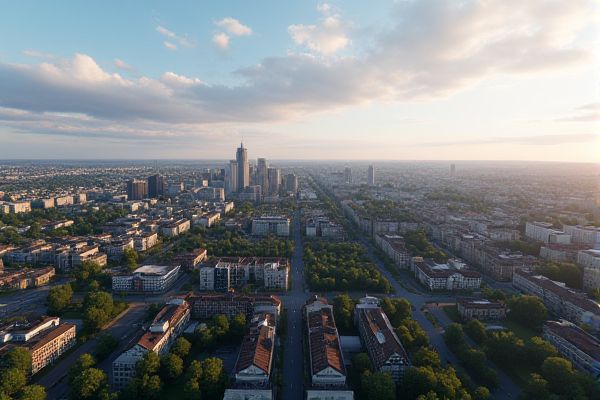
Social and community groups in Sweden: Fika tradition fosters social interaction. Lagom influences community harmony. Active sports clubs available nationwide. Strong emphasis on cultural inclusivity. Numerous volunteer opportunities exist. Comprehensive support for newcomers. LGBTQ+ friendly spaces widely accepted. Religion practiced freely and diversely. Language workshops often accessible. Collaborative workspaces popular in cities.
Fika tradition fosters social interaction.
Fika in Sweden fosters social interaction by providing a ritualistic break for people to engage in meaningful conversations, exchange stories, and cultivate relationships, whether in the workplace, at home, or in cafes. It emphasizes the importance of interpersonal connections and community building. To delve deeper into this cultural tradition, Embracing Fika: The Art of Coffee and Connection in Swedish Culture offers fascinating insights about how this simple practice strengthens ties and enhances social well-being.
Lagom influences community harmony.
Lagom influences community harmony in Sweden by fostering an attitude of fairness and equality, promoting community and collective responsibility, and encouraging harmonious coexistence with the environment and within communities, reflecting the Swedish national psyche of consensus and equality. This philosophy helps in creating a balanced and sustainable social environment where everyone gets their fair share, ensuring a sense of contentment and social solidarity. To learn more about this philosophy, visit Lagom.
Active sports clubs available nationwide.
In Sweden, active sports clubs are a cornerstone of the community, with over 20,000 clubs nationwide, supported by the Swedish Sports Confederation. These clubs, which include a wide range of sports such as skiing, ice hockey, handball, and football, are predominantly run by volunteers and cater to all ages. They promote values of joy, community, democracy, and fair play.
Strong emphasis on cultural inclusivity.
In Sweden, there is a strong emphasis on cultural inclusivity, with policies and institutions dedicated to promoting multiculturalism, such as the integration of cultural diversity into the school curriculum, funding for ethnic minority organizations, and support for bilingual education and mother tongue instruction. The Swedish Arts Council and the Ministry of Culture also play significant roles in promoting Cultural Diversity, equality, and accessibility.
Numerous volunteer opportunities exist.
Numerous volunteer opportunities exist in Sweden, focusing on community development, healthcare, and environmental conservation. Volunteers can engage in activities such as promoting healthy habits, assisting in hospitals, raising awareness about environmental issues, and participating in various community and NGO projects across cities like Stockholm, Lund, Uppsala, and Goteborg. To explore more about these experiences, Go Overseas offers a comprehensive guide to volunteer abroad in Sweden, providing valuable insights into making a positive impact while immersing in the local culture.
Comprehensive support for newcomers.
RFSL Newcomers provides comprehensive support for LGBTQI newcomers in Sweden, offering activities, Swedish lessons, legal counselling, and advocacy on asylum issues. They create a safe space for social interaction and support. For more information, you can visit their RFSL Newcomers page.
LGBTQ+ friendly spaces widely accepted.
In Sweden, LGBTQ+ friendly spaces are widely accepted and integrated into the general community, with venues like Moxy, Secret Garden, and various Pride celebrations reflecting a culture where queer individuals feel supported and included in most public spaces. To discover more about LGBTQ+ travel options in Sweden, visit the IGLTA website, which highlights how the country embraces diversity and inclusion, making it a welcoming destination for all travelers.
Religion practiced freely and diversely.
In Sweden, religion is practiced freely and diversely, with the constitution ensuring freedom of religion and the government respecting this right. The religious landscape is increasingly diverse, with Christians (particularly the Lutheran Church of Sweden) making up about 59.6% of the population, while other significant groups include Muslims, Buddhists, Jews, and Hindus, along with a growing number of people not affiliated with any church. For more detailed information, visit the article on Religion in Sweden.
Language workshops often accessible.
Language workshops in Sweden are often accessible through various platforms, including Meetup.com for local groups, Swedish cultural organizations, universities, and language learning apps like Babbel, HelloTalk, and Tandem, which offer group features and interactions with native speakers. One such platform is the Best Swedish Learning Groups, where learners can engage in productive language practice. This platform is an invaluable resource for anyone looking to immerse themselves in the language. Additionally, the Meetup group "Learn Swedish Online" hosts free online sessions via Zoom, led by a native Swedish speaker. These sessions offer participants the opportunity to practice speaking and listening in a relaxed and supportive environment, suitable for those with a B1 level or better in Swedish.
Collaborative workspaces popular in cities.
In Sweden, collaborative workspaces are highly popular, particularly in cities like Stockholm, Gothenburg, and Malmo, where platforms like Workaround offer a wide range of coworking spaces that foster collaboration, networking, and a vibrant professional community, with amenities such as meeting rooms, hot desks, and shared open-plan areas.
